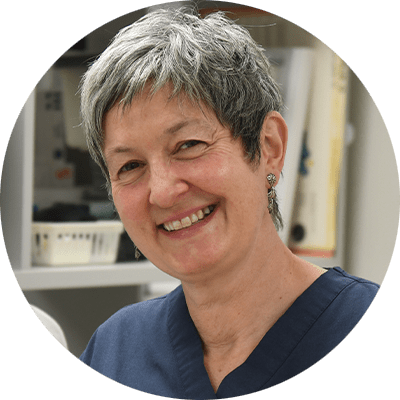Hello my friend in desktop mode.
Hello my friend in desktop mode.
Hello again my friend in desktop mode.
Hello again friend in mobile mode.
Ophthalmologist Justine Smith has a message that may have you rethinking your taste for rare steak.
The Strategic Professor in Eye and Vision Health at Flinders University researches a devastating condition called uveitis – an inflammation of the interior of the eye that is a common cause of blindness.
Uveitis is not one disease, Professor Smith, a clinician as well as a researcher, explains. Rather it is a group of diseases divided into the infectious variety, caused by pathogens including Ebola, dengue and Zika viruses, and non-infectious inflammation akin to diseases such as rheumatoid arthritis or multiple sclerosis, but in the eye.
There is even a uveitis that is a form of lymphoma that occurs in the eye and looks like inflammation that masks a cancer of the white blood cells.
But where does the rare steak come in?
The most common infectious uveitis is ocular toxoplasmosis caused by the parasite Toxoplasma gondii.
It is probably best known for being carried by cats, but the parasite can also be eaten by grazing animals such as cattle, sheep and pigs, and end up in our food chain.
“We can catch Toxoplasma from the cat, but the more likely way to catch it is by eating your meat undercooked,” says Professor Smith.
Repeated occurrences of Toxoplasma-induced inflammation of the retina can lead to permanent scarring and blindness.
Professor Smith’s recent research suggests the condition is more prevalent than we thought.
“Eye doctors know it’s common because they see it in their clinics, but other doctors don't think it's common because they don't hear about it,” she says. “We wanted to show that it really was a common problem.”
She turned to the data from the Busselton Healthy Ageing Study (BHAS), a large multidisciplinary project investigating the causes of and risk factors for a wide range of conditions of public health importance in an ageing population.
“We can catch Toxoplasma from the cat, but the more likely way to catch it is by eating your meat undercooked,”
Professor Smith and her team screened more than 5,000 eye photographs and estimated that one in 150 Australians has a Toxoplasma scar in their retina, making it surprisingly common for a disease of which few would consider themselves to be at risk.
The Professor’s other findings, though, suggest why.
“Separately, we did a project where we went down to the local supermarket looking for Toxoplasma in meat,” she says “We sampled lamb mince and found that, conservatively, 40% was positive and less conservatively, maybe two-thirds.
“So, you have to cook your meat.”
Alternatively, if you want to eat meat rare, Professor Smith advises to freeze it before you cook it, which is another way of killing Toxoplasma.
That’s the easy part as, once infected, there is no drug or vaccine that can eradicate the parasite.
“There are a lot of anti-microbials that will act against the parasite, but none of them are curative. Once you've been infected with Toxoplasma, you carry it for life like the herpes virus.”
However, Professor Smith says treatment can minimise damage.
“Part of the damage is the caused by the reactive inflammation inside the eye against the parasite, and so we treat patients with anti-inflammatories, usually corticosteroid-based drugs, drugs, along with the anti-microbials.
“We can inject them into the eye or give them to the patient by mouth.”
In the search for a better solution, Professor Smith used her myriad international connections to form a worldwide study group of almost 200 uveitis specialists to describe their approach to tackling ocular toxoplasmosis.
They published a paper this year, effectively providing a blueprint for how to manage the disease.
Back home, Professor Smith is working on the only study in the world using human eye tissue to study the mechanisms of Toxoplasma infection.
“At Flinders University, we have unique access to human eye tissue and we isolate different cells from that eye tissue,” she says. "That's really important because humans have a different response and recognition system for the parasite than animals.”
Thanks to that work, we now have a good understanding of how the parasite gets into the eye, moves across the blood vessel walls, and infects retinal cells.
Meanwhile, she continues to research the human cost of the disease around the world, which may be more devastating than we thought. A collaboration with the University of São Paulo, Brazil, is leveraging the country’s big population to study a large cohort of patients.
“If you take all the patients that come to the clinic with ocular toxoplasmosis, a quarter of them are blind in one of their eyes,” Professor Smith adds, underscoring the importance of her mission.
“There are a lot of anti-microbials that will act against the parasite, but none of them are curative. Once you've been infected with Toxoplasma, you carry it for life like the herpes virus.”
Download your free copy of Fearless Research
![]()
Sturt Rd, Bedford Park
South Australia 5042
South Australia | Northern Territory
Global | Online
CRICOS Provider: 00114A TEQSA Provider ID: PRV12097 TEQSA category: Australian University










